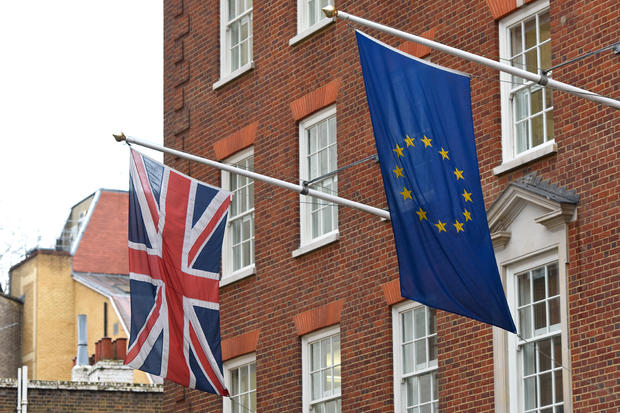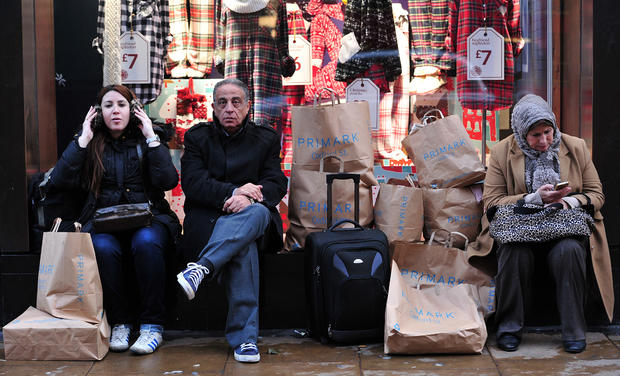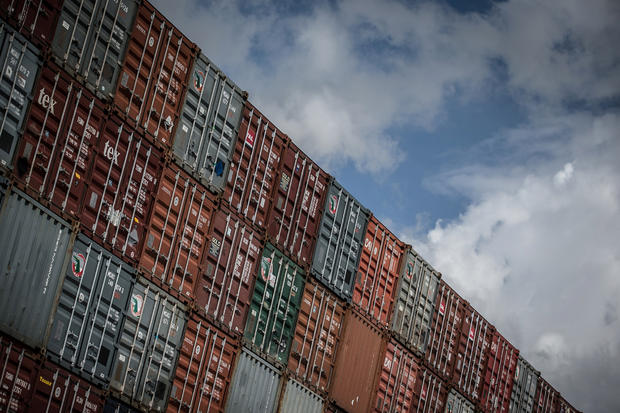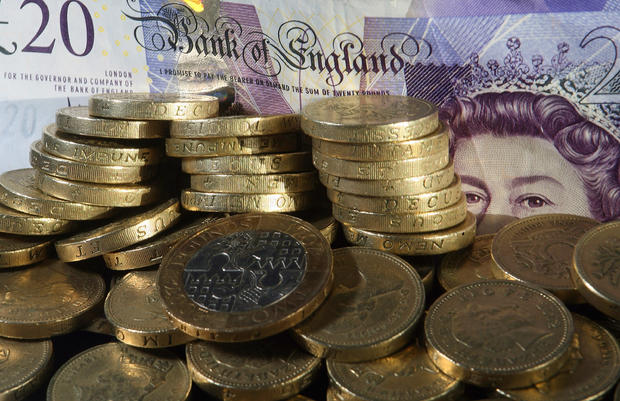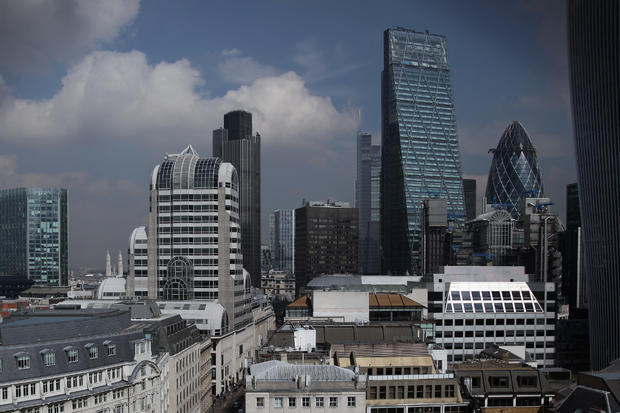5 things to know about a possible "Brexit"
LONDON -- Britain will make a momentous decision on June 23 -- whether or not to stay in the European Union -- that will have wide-ranging consequences for businesses.
Though the vote is still far off, the prospect of months of uncertainty has unnerved investors, who have pushed the currency, the pound, to seven-year lows.
Some major businesses have come out vocally in support of the campaign to stay in the 28-country bloc, but popular sentiment is in flux. And senior politicians, including the mayor of London, have come out in favor of leaving, suggesting the debate will be hard fought.
Here's a broad look at the risks investors and businesses are worried about.
Uncertainty
Markets abhor uncertainty, and the possibility that Britain may leave the EU has the financial world hedging its bets. The primary concern is that Britain's departure would reduce investment in the country and slow economic growth, touching off a collapse in the pound. The pound has fallen every day this week since the vote's date was set, leaving it 3.5 percent weaker against the dollar, at $1.3932.
In a report released Wednesday, Britain's largest bank, HSBC, said the currency could fall between 15 percent and 20 percent against the dollar, pushing it to 1980s levels, if the country votes to leave the bloc. That could drive inflation up by 5 percentage points as import costs surge for firms and consumers, HSBC estimates.
The referendum is also fueling political uncertainty. Prime Minister David Cameron has staked so much personal capital on renegotiating Britain's relationship with the bloc and now campaigning to stay in a "reformed" EU, that a vote to leave could undermine his position. London Mayor Boris Johnson, one of Cameron's primary rivals for leadership of the Conservative Party, is supporting the leave campaign.
There's also no clarity on what exactly would happen if Britain were to decide to leave the EU because no established economy has ever done so before. Only Greenland left an earlier, more limited version of the bloc in 1985.
Many economists agree Britain would remain a dynamic economy, but investors are worried about the transition phase.
"No one knows what the U.K.'s exit status will be," said UniCredit economist Daniel Vernazza. "And investors are risk-averse, so sterling (the pound) is selling-off."
Trade
The EU is first and foremost a trading bloc that includes 508 million people in 28 countries -- together the world's largest economy. While member states get easy access to each other's markets, the bloc also uses its size to negotiate favorable trade treaties with non-members such as the United States and China.
With the terms of a so-called Brexit unclear, investors are concerned about what the country's departure would mean for trade. And it's not just trade within the EU. Trade talks with the United States are another example. "Exiting the EU will mean that the UK will no longer be party to such agreements and will have to negotiate its own terms," UBS said in a report last year.
Labor
A vote to leave the EU could lead to labor shortages if workers from other European countries were sent home or more restrictions were imposed on those coming in. Certain sectors of the British economy, like construction, which depend on workers from the continent, might be hurt.
Leaving the EU could also threaten export-oriented service industries, which account for about 30 percent of the U.K.'s gross domestic product. Investors are concerned that Britain would be excluded from the so-called passport for services, which puts the qualifications of UK professionals such as lawyers and accountants on an equal footing with those of their counterparts in other EU states. This would make it more difficult for some professionals to work on the continent.
"The threat to the service sector from loss of free access to EU markets and exclusion from the formation of the rules of engagement could arguably affect the UK's longer term growth outlook," UBS said.
Inflation
A sustained depreciation of the pound could lead to inflation, which at the moment is muted. In the case of high inflation, the Bank of England would look to raise interest rates to put a lid on price increases. Raising rates, however, also weighs on the economy by making loans more expensive.
"Under a more benign scenario, markets and firms might assume a good 'divorce' settlement could be achieved. In turn, fears of paralyzing uncertainty could prove to be misplaced," HSBC said. "But there is also a worse scenario, which would see the Bank of England forced to tighten policy despite a slowdown in growth."
Investment
Britain attracts a lot of foreign investment for the size of its economy. That means it is running one of the largest current account deficits in the advanced world, at 4.7 percent of GDP.
UniCredit's Vernazza suggests this is probably OK as long as there is demand abroad for UK assets. "Right now there is, but Brexit could change this," he said. "Quite quickly the U.K. may no longer be seen as an attractive place to invest."
The U.K. is the largest recipient of foreign direct investment in the EU, receiving 20 percent of all such funds, he said. But there are concerns that investors may take their money -- and things like their corporate headquarters operations -- to the continent if Britain no longer offers a foothold in the EU.
